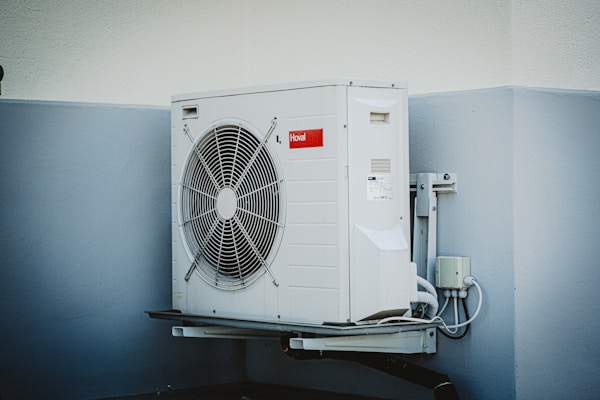How To Prevent a Frozen Evaporator Coil
If you’re dealing with a frozen evaporator coil in your air conditioning system, don’t worry—there are ways to prevent this from happening again. With the right knowledge and preparation, you can keep your evaporator coil from freezing over and ensure your AC is running efficiently and effectively. Keep reading to learn more about how to prevent a frozen evaporator coil.
Ensure quality airflow.

In order for your evaporator coil to function properly, it must have adequate airflow. A clogged air filter is one of the most common causes of a frozen evaporator coil. A clogged air filter prevents the air from flowing properly through the system, resulting in a decrease in air pressure and a decrease in air temperature. This decrease in temperature can cause the heat pump to freeze up, as the air cannot escape the system. To prevent a clogged air filter from causing a frozen heat pump, the filter should be inspected and changed regularly. It is suggested that homeowners change HVAC air filters at least every 90 days.
Ensuring that your ductwork is free from obstructions and leaks is also an important step in preventing a frozen evaporator coil. When obstructions or leaks occur in the ductwork, it can cause the temperature of the evaporator coil to drop below freezing, resulting in a frozen coil. It is important to check for any obstructions or leaks in the ductwork regularly to ensure adequate airflow. Additionally, shrubs, debris, and other items can block off the outside unit and prevent adequate airflow. As part of your routine home maintenance, you should prune the trees and shrubs around your unit and ensure that it is clear of any obstructions.
Check refrigerant levels.
One of the most important steps to preventing a frozen evaporator coil is to check and maintain the refrigerant levels in your system. Low refrigerant is a common cause of frozen heat pumps. When there is an inadequate amount of refrigerant in the system, the liquid line can become too cold, causing the evaporator coil to become frosty.
A leak in the system is usually the primary cause of low refrigerant levels. This can be due to aging or damaged pipes, a defective compressor, incorrect installation, sizing issues with your unit, and even manufacturing defects. To prevent this from occurring, it’s important that you get regular checks on your refrigerant level as well as annual maintenance for optimal performance.
Clean your evaporator coil.

Having a dirty evaporator coil is a common problem that can cause several issues with your HVAC. If the evaporator coil of your HVAC equipment becomes dirty, it will not be able to absorb heat from the air in the home efficiently. This can lead to an increase in the temperature of the refrigerant, causing it to become too cold and potentially leading to the freezing up of the entire system.
To prevent a dirty and frozen evaporator coil, you should clean the entire unit frequently. This can be done by turning off the power to the system and then removing the cover of the unit. Carefully inspect the evaporator coil for dirt and debris, and if any is present, use a shop vac to remove it. Once the evaporator coil is clean, replace the cover and turn the power back on. Having seasonal maintenance performed by an HVAC technician annually will also ensure that your system is clean and efficient.
Overall, preventing a frozen evaporator coil is essential to keeping a heating and air conditioning system running efficiently and effectively. Regular maintenance and inspections are key to ensuring that the system is working correctly and that any issues that arise are addressed promptly. Preventing your evaporator coil from freezing up is essential to ensuring comfortable temperatures in your home year-round.

